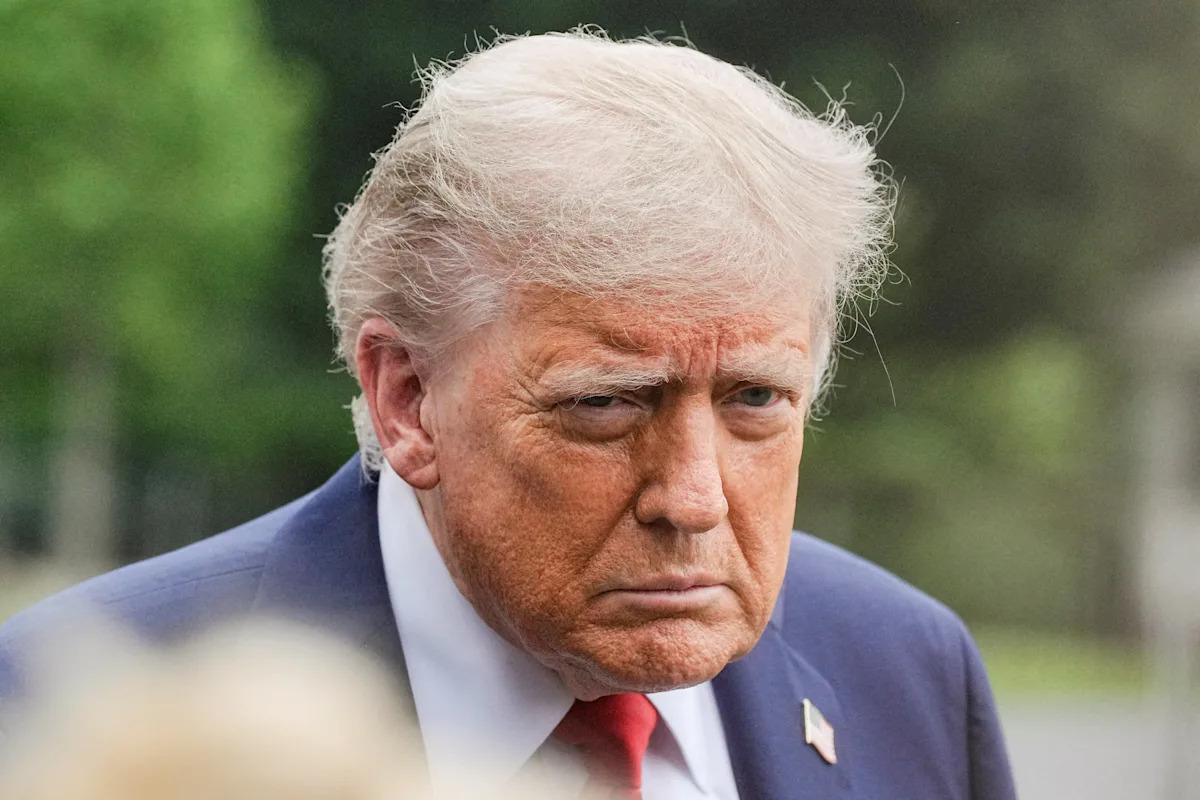Trump’s Letter Fiasco: A Diplomatic Blunder
In a move that has been described as both bold and brash, former President Donald Trump embarked on a letter-writing campaign aimed at strong-arming world leaders into accepting his tariff trade deals. The mission, however, hit an early snag, revealing a glaring lack of attention to detail. The focus of this campaign was to pressure countries into new trade agreements, threatening to reinstate tariffs if deals weren’t struck by a specific deadline. The implications were far-reaching, and the execution, as it turned out, was less than perfect. The initiative’s primary objective was to secure favorable trade agreements by leveraging the threat of increased tariffs.
The core strategy involved sending out a series of warning letters, with the clear message that countries needed to negotiate new trade deals with the United States promptly. The pressure was on, and the stakes were high. This approach, however, was immediately marred by a significant error. The incident highlights the challenges of international diplomacy and the importance of meticulous attention to detail, especially when dealing with complex matters such as trade agreements and cross-border relations. This incident serves as a reminder of how even the most carefully crafted plans can be derailed by seemingly minor errors.
The Misgendering Mishap: A Question of Protocol
The most prominent misstep occurred when Trump misgendered the Chairwoman of the Presidency of Bosnia and Herzegovina, Željka Cvijanović. Initially, the letter addressed her as “Dear Mr. President,” a significant error in diplomatic protocol, given her position. This oversight quickly became a point of criticism. The initial misgendering was swiftly corrected, with a revised letter posted that began “Dear Madam President.” The quick correction was a sign of damage control. Despite the swift correction, the error underscored the importance of accuracy and respect in international communications. The details are crucial when it comes to international relations. The White House hasn’t commented on the issue.
The choice of words in diplomatic communications holds significant weight, and the correct addressing of foreign dignitaries is considered a matter of utmost importance. Attention to these details is not merely a matter of etiquette but also a reflection of respect and a key element in fostering positive relations. These errors can cause misunderstanding or even offend the receiver, which can damage the trade deals.
The Context of Cvijanović’s Role and Past Disputes
Željka Cvijanović, the Chairwoman of the Presidency of Bosnia and Herzegovina, has a history of dealing with the United States, adding another layer of complexity to this blunder. Cvijanović’s past interactions with the U.S. government are relevant to the story, and these historical facts provide a much broader picture. She has previously faced sanctions for actions that the U.S. viewed as undermining peace efforts in the Balkans. These sanctions were imposed for attempting to undermine the legitimacy of Bosnia and Herzegovina. She has been involved in disputes and negotiations with the United States. She was sanctioned by the United Kingdom in 2022. These sanctions were related to her actions regarding the situation in Bosnia and Herzegovina.
The misgendering incident and subsequent actions raise questions about the relationship between the U.S. and Bosnia and Herzegovina. The background of the countries involved in the trade deals adds a layer of complexity to the story. Considering the history between the two countries is critical to understanding the current situation and potential impacts of the trade deals.
Tariff Troubles and Trade Deal Delays
Beyond the diplomatic missteps, the timeline for Trump’s trade deals has faced setbacks, adding to the narrative of complications. The initial deadline for the “reciprocal tariffs” rollout was delayed. The fact that the United Kingdom and Vietnam were the only countries that had finalized deals shows the difficulties of the task. The market plunged after the president posted the letters online. The economic repercussions have begun to manifest. The markets reacted swiftly. Trump’s approach to trade and tariffs, as well as the reactions of various countries, added to the situation.
Trump has been nicknamed TACO due to the backflipping of the tariffs. The deals were made in the midst of these diplomatic maneuvers. The situation presents a dynamic interplay of economic factors and political decisions. He said, “We’re going to have much more than 90, but most of those are going to be sent a letter… We’re sending out letters to various countries, telling them how much tariffs they have to pay. Some will maybe adjust a little bit, depending if they have a, you know, cause we’re not going to be unfair about it.” He added, “And actually, it’s a small fraction compared to what we should be getting. We could be asking for a much more, but for the sake of relationships that we’ve had with a lot of really good countries, we’re doing the way I do it, but we could be getting a lot, we could ask for a lot more than what we’re asking for.”
The Content of the Letters: A Closer Look
The letters themselves contained a specific message, laying out the terms for potential trade adjustments. The letters served as the primary form of communication. They included the statement, “If you wish to open your heretofore closed Trading Markets to the United States, and eliminate your Tariff, and Non Tariff, Policies and Trade Barriers, we will, perhaps, consider an adjustment to this letter. These Tariffs may be modified, upward or downward, depending on our relationship with your Country.” They concluded with the assurance, “You will never be disappointed with The United States of America.”
The structure and tone of the letters reveal the priorities and strategies driving the trade deals. The letters represent an aggressive approach and an attempt to reshape global trade dynamics. The language used, the requests made, and the deadlines imposed all demonstrate the ambition behind the initiative. The tone of these letters reveals a lot about the U.S. approach to trade. They set clear expectations and suggest flexibility.
Conclusion: Diplomacy and the Devil in the Details
Former President Trump’s letter-writing campaign illustrates a confluence of diplomatic missteps, economic repercussions, and international relations dynamics. The misgendering incident, the delays in trade deals, and the content of the letters themselves paint a complex picture. The story underscores the importance of precision in diplomatic communications and the need for careful consideration of historical context. As these trade deals continue to unfold, they will likely shape the U.S.’s relationships with many countries. Attention to detail and respect for protocol remain critical. The story reveals the challenges of international diplomacy and the impact of actions on trade negotiations.




